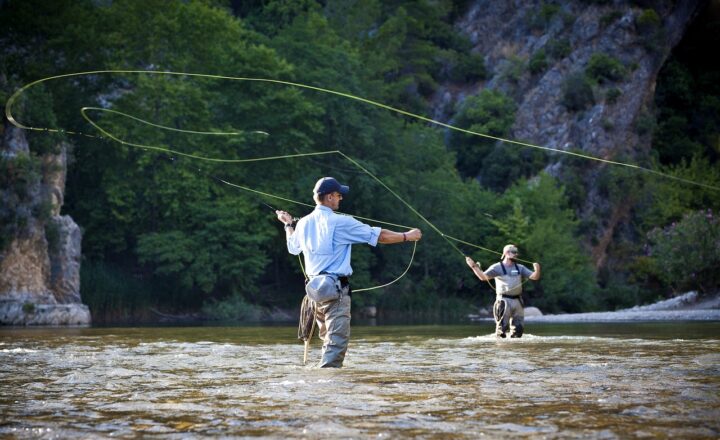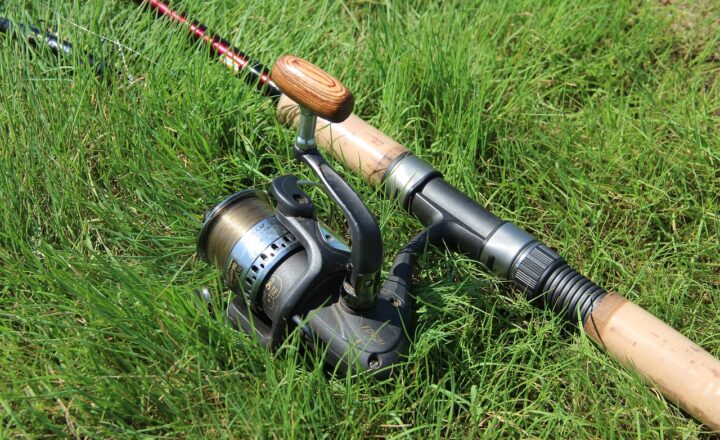Why Saltwater Fishing Requires Special Techniques—and What You Need to Know
November 11, 2024

Saltwater fishing is an exhilarating experience that offers anglers the chance to catch a variety of fish species, from bass to marlin, while enjoying the beauty of the open water. However, fishing in saltwater comes with its own unique set of challenges and techniques that differ significantly from freshwater fishing. In this article, we will explore the nuances of saltwater fishing, the gear you need, the techniques for success, and some tips for beginners.
1. Understanding Saltwater Fishing
Saltwater fishing refers to the practice of angling in oceans, seas, or other bodies of saltwater. It can be done from the shore, a dock, or a boat and targets fish species that thrive in saline environments. The ocean is home to a diverse range of fish, and different types of saltwater fishing can be pursued depending on location, conditions, and the desired species.
Types of Saltwater Fishing
There are primarily three types of saltwater fishing:
- Inshore Fishing: This occurs closer to the shore in shallow waters. Target species may include snook, redfish, and flounder.
- Offshore Fishing: This venture takes you out to deeper waters in pursuit of larger species like tuna, swordfish, and wahoo. Offshore fishing often requires specialized boats and equipment.
- Deep Sea Fishing: Typically considered a subset of offshore fishing, deep sea fishing goes even further out to reach depths greater than 1,000 feet, targeting species such as marlin and sharks.
Understanding these types of saltwater fishing will help you determine where to focus your efforts as you begin your fishing journey.
2. Specialized Gear for Saltwater Fishing
The first step to successful saltwater fishing is investing in the right gear. Saltwater environments can be harsh on equipment, so selecting gear designed specifically for saltwater conditions is critical. Here are some essential items to consider:
- Fishing Rods: Saltwater rods are typically constructed from materials that resist corrosion, such as fiberglass or composite. They also come with increased durability to handle larger fish.
- Reels: Choose saltwater reels that have sealed components to prevent saltwater intrusion. Spinning and conventional reels are both popular options, depending on your fishing style.
- Line: Use heavy-duty fishing line with a high test strength, such as braided line, which is more resistant to abrasions and the impact of saltwater.
- Hooks and Lures: Saltwater fish often require specific types of hooks and lures. Circle hooks and jigs are commonly used, along with topwater plugs for surface action. Use lures that mimic the natural prey of the fish you are targeting.
- Fishing Tackle Box: A quality tackle box specifically designed for saltwater fishing will keep your gear organized and protected from the elements throughout your fishing trips.
Investing in the right gear is paramount to withstand the rigors of saltwater environments, ensuring that your fishing experience remains enjoyable and productive.
3. Essential Techniques for Success
Fishing in saltwater can be different from freshwater fishing because of the fish species behavior, feeding patterns, and prevailing conditions. Here are some essential techniques to help maximize your chances of success:
- Understanding Tides: Saltwater fish are often more active during specific tidal periods. Familiarize yourself with the tides in your area to determine the best times to fish, as some species feed more aggressively during incoming or outgoing tides.
- Selecting Bait: Live bait tends to be more effective in saltwater fishing, as many species are accustomed to preying on smaller fish or crustaceans. Options like shrimp, mullet, or squid can work wonders. If using artificial lures, match the color and size to the local forage fish.
- Casting Techniques: In saltwater fishing, a strong cast can mean the difference between landing a fish or missing out. Practice overhead and side-casting techniques to ensure you can cast your lure or bait where it needs to go, particularly in windy conditions.
- Drift Fishing: Drift fishing allows you to cover large areas while allowing bait to flow naturally with currents. This technique is particularly effective in offshore or inshore fishing, as it mimics natural movement and attracts curious fish species.
- Bottom Fishing: This technique involves dropping bait down to the ocean floor to catch ground-dwelling species. It can be extremely effective for species like grouper or snapper. Tie on suitable weights to get your bait to the desired depths.
Mastering these techniques will give you a competitive edge in your saltwater fishing quest.
4. Tips for Beginners
If you are new to saltwater fishing, here are some tips to help you get started on the right foot:
- Do Your Research: Research local fishing regulations, species behavior, and fishing spots. Online forums, social media groups, and local bait shops can be great resources for learning from more experienced anglers.
- Join a Charters or Guides: Consider teaming up with a fishing charter or guide service for your first few outings. This allows you to learn from professionals while increasing your chances of landing a catch.
- Practice Patience: Saltwater fishing can sometimes mean long hours without bites. Stay patient and enjoy the experience of being on the water, as fishing is as much about the journey as the destination.
- Stay Safe: Always prioritize safety. Ensure you have the necessary safety gear, such as life jackets, sun protection, and drinking water. Be aware of changing weather conditions and have a plan in place for emergencies.
- Enjoy and Learn: Take note of what worked and what didn’t during your fishing trips. Every outing is an opportunity to learn and improve your skills as an angler.
Starting your saltwater fishing adventure with these tips can help you cultivate your skills and ensure a rewarding experience.
Conclusion
Saltwater fishing is a captivating pursuit that offers challenges and rewards unique to the open waters. By understanding saltwater fishing’s nuances, investing in the right gear, mastering specialized techniques, and utilizing smart tips, you can enhance your fishing experience and improve your chances of success. Whether you’re casting off the shore or heading deep into the ocean, the thrill of landing a saltwater fish will keep you coming back for more. Prepare, practice, and enjoy your journey into the world of saltwater fishing!






